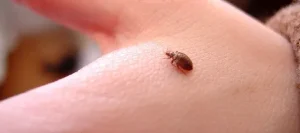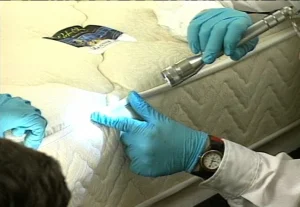Sixty Years Ago, Bed Bugs Were Nearly Eradicated—Now They’re Back and Tougher Than Ever
By the 1960s, widespread pesticide use had nearly eradicated bed bug populations. In the past two decades, however, these persistent pests have made a troubling resurgence. Now, scientists have uncovered genetic factors that shed light on their growing resistance to insecticides.
A team of researchers led by Hidemasa Bono of Hiroshima University has sequenced the most complete insecticide-resistant bed bug genome to date and compared it to the genome of a non-resistant bed bug. Their findings, detailed in a study published in the journal Insects in September, offer unprecedented insights into the genetic mutations driving insecticide resistance in bed bugs, which could shape future pest control strategies.
Bed bugs are notorious for being a serious nuisance. While they are not known to transmit diseases to humans, their bites can lead to itching, sleep loss, anxiety, and, in some cases, allergic reactions, according to the Centers for Disease Control and Prevention (CDC). Excessive scratching can also result in secondary skin infections.
“We identified a large number of genes likely involved in insecticide resistance, many of which have not been previously reported as being associated with resistance in bed bugs,” said Kouhei Toga of Hiroshima University, the study’s first author, in a university statement.
The researchers analyzed the genomes of two groups of bed bugs: non-resistant specimens descended from wild bed bugs captured over six decades ago in Nagasaki, and resistant specimens descended from bed bugs found in a Hiroshima hotel in 2010. Using a “breakthrough” method called long-read sequencing, which enables the sequencing of longer DNA sections with fewer gaps, the team mapped both genomes with near-gap-free and near-error-free precision.
When comparing the two genomes, the researchers identified hundreds of mutations associated with insecticide resistance. Notably, they found that the genome of the hotel bed bugs was 19,859 times more resistant to pyrethroids—a common synthetic pesticide—than the non-resistant genome.
“We determined the genome sequence of insecticide-resistant bed bugs, which exhibited 20,000-fold greater resistance compared to susceptible bed bugs,” said Toga. “By comparing the amino acid sequences between the susceptible and resistant bed bugs, we identified 729 transcripts with resistance-specific mutations.” These transcripts are RNA molecules that translate DNA instructions into proteins.
The study not only confirmed resistance mutations found in previous research but also uncovered new ones. “These transcripts included genes related to DNA damage response, cell cycle regulation, insulin metabolism, and lysosome functions. This suggests that these molecular pathways may play a role in the development of pyrethroid resistance in bed bugs,” Toga explained. Lysosomes are organelles in animal cells that contain digestive enzymes.
By identifying these mutations, the study provides valuable genetic resources to monitor, understand, and address insecticide resistance in bed bug populations—both in the wild and in our homes. This research is especially relevant in preventing scenarios like the Paris 2023 bed bug outbreak from recurring.
A Superior Solution: Heat Treatment for Bed Bug Infestations
With the growing issue of insecticide resistance, traditional chemical treatments are becoming less effective and often require multiple applications to achieve results. That’s where our bed bug heater rental service offers a superior alternative. Heat treatments are a proven, eco-friendly method to eliminate bed bugs in all stages of life, including eggs, nymphs, and adults, without the need for harsh chemicals.
Bed bugs are highly sensitive to temperature. Exposing them to sustained temperatures of 120°F or higher effectively kills them within minutes. Our professional-grade bed bug heaters are designed to distribute heat evenly throughout the treatment area, ensuring every corner is treated thoroughly. This eliminates hiding spots for bed bugs and reduces the likelihood of reinfestation.
Advantages of Heat Treatment Over Insecticides:
- Chemical-Free and Safe: Heat treatment avoids exposing your family and pets to potentially harmful pesticides.
- One-Time Treatment: Unlike insecticides, which may require multiple applications, heat treatment can eradicate an infestation in a single session.
- Environmentally Friendly: No toxic residues are left behind, making it a sustainable and eco-conscious choice.
- Highly Effective: Heat reaches areas where insecticides often fail, such as deep crevices in furniture, walls, and mattresses.
- Minimizes Resistance: Heat kills bed bugs outright, bypassing the genetic mutations that make them resistant to chemicals.
Our bed bug heaters are easy to use and come with detailed instructions to help you treat your space effectively. Whether you’re dealing with an infestation in your home, rental property, or business, our heaters provide a fast, reliable solution to reclaim your space.
Don’t let insecticide-resistant bed bugs take over your home. Heat treatment offers a safer, smarter way to eliminate infestations for good. Contact us today to learn more about our bed bug heater rental options and take the first step toward a pest-free environment.
Source: Gizmodo



